IEC walks thin line on rights
by Mosotho Moepya,
2016-03-14 05:48:35.0
A NUMBER of debates are raging in our society regarding rights, responsibilities and duties. More specifically, the question is being asked to what extent rights afforded to citizens in our Constitution may be bound by administrative or affordability constraints. One such debate is about the use of official languages; another regarding the right to tertiary education.
Following the successful registration drive last weekend before this year’s municipal elections, questions have been raised about the extent to which the right to vote should be restricted by the administrative burden of registration.
Some argue requiring citizens to register so that they can exercise this right is an unnecessary administrative burden imposed on voters that tips the scales from voting as a right to voting as a duty.
The Electoral Commission of SA (IEC) has always been driven by a strategy to make registration as easy and inclusive as possible.
This is why we hold registration on weekends, when we open all 22,569 voting stations to make registration as convenient and accessible as possible for citizens.
And we have always adopted an approach that is informed by the enfranchisement of voters, as opposed to disenfranchising them. This has seen us grow the voters’ roll from 18-million in 1999 to about 25-million at present.
Ironically, it is this focus on inclusivity and enfranchisement, rather than administrative correctness and an insistence on a physical address for each voter, that has placed the IEC at the wrong end of recent judgments by the Constitutional Court and the Electoral Court.
We cannot allow administrative requirements to override the fundamental rights of millions of our citizens who do not have formal or conventional addresses to vote. That is why we are seeking clarity from the Constitutional Court on the address requirement, among others.
To suggest that registration should be scrapped and replaced by simply placing all citizens on the population register (which includes both citizens and noncitizens) on the voters roll misses a fundamental aspect of free and fair elections: making sure that votes are cast only by those with a right to vote.
It also forces the IEC to register citizens who do not wish to register and to vote, to do so against their will. In a national election based on proportional representation, the location of the voter is of little or no consequence (hence South Africans overseas are allowed to vote). But in a provincial election — and even more so in a municipal election in which ward councillors are elected through a constituency system — locating voters within a ward and a municipality is a fundamental part of the integrity of the elections.
This is exactly the point the Constitutional Court made recently. It is also the point made by the Constitutional Court in 1999 (New National Party of SA vs Government of the Republic of SA and Others), when the court held unanimously that the requirement that South African citizens register before they could exercise their vote "was a constitutional imperative … and not a limitation of the right". The Constitutional Court went on: "The process of registration and voting needed to be managed and regulated in order to ensure elections were free and fair."
The IEC will continue to explore ways of making it as easy and convenient as possible for voters to register — while at the same time balancing the need to place voters within specific wards and voting districts to ensure free and fair elections. There are many good men and women in the IEC and our social partners, with whom we remain engaged on issues connected to strengthening electoral democracy and seeking ways of doing so.
To the extent that there may be brilliant thoughts that have as yet not been born from all these efforts thus far, we would welcome any constructive suggestions on how best we can go about doing so.
• Moepya is CEO of the IEC and chief electoral officer
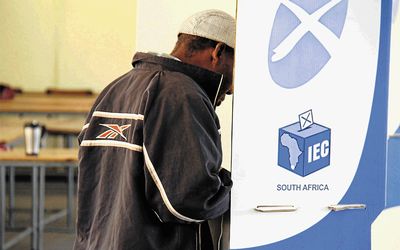
MARK THE SPOT: A voter casts his vote at Boitshoko Secondary School polling station in Ikageng, Tlokwe, during a by-election in August 2013. Picture: SOWETAN/SUNDAY WORLD
A NUMBER of debates are raging in our society regarding rights, responsibilities and duties. More specifically, the question is being asked to what extent rights afforded to citizens in our Constitution may be bound by administrative or affordability constraints. One such debate is about the use of official languages; another regarding the right to tertiary education.
Following the successful registration drive last weekend before this year’s municipal elections, questions have been raised about the extent to which the right to vote should be restricted by the administrative burden of registration.
Some argue requiring citizens to register so that they can exercise this right is an unnecessary administrative burden imposed on voters that tips the scales from voting as a right to voting as a duty.
The Electoral Commission of SA (IEC) has always been driven by a strategy to make registration as easy and inclusive as possible.
This is why we hold registration on weekends, when we open all 22,569 voting stations to make registration as convenient and accessible as possible for citizens.
And we have always adopted an approach that is informed by the enfranchisement of voters, as opposed to disenfranchising them. This has seen us grow the voters’ roll from 18-million in 1999 to about 25-million at present.
Ironically, it is this focus on inclusivity and enfranchisement, rather than administrative correctness and an insistence on a physical address for each voter, that has placed the IEC at the wrong end of recent judgments by the Constitutional Court and the Electoral Court.
We cannot allow administrative requirements to override the fundamental rights of millions of our citizens who do not have formal or conventional addresses to vote. That is why we are seeking clarity from the Constitutional Court on the address requirement, among others.
To suggest that registration should be scrapped and replaced by simply placing all citizens on the population register (which includes both citizens and noncitizens) on the voters roll misses a fundamental aspect of free and fair elections: making sure that votes are cast only by those with a right to vote.
It also forces the IEC to register citizens who do not wish to register and to vote, to do so against their will. In a national election based on proportional representation, the location of the voter is of little or no consequence (hence South Africans overseas are allowed to vote). But in a provincial election — and even more so in a municipal election in which ward councillors are elected through a constituency system — locating voters within a ward and a municipality is a fundamental part of the integrity of the elections.
This is exactly the point the Constitutional Court made recently. It is also the point made by the Constitutional Court in 1999 (New National Party of SA vs Government of the Republic of SA and Others), when the court held unanimously that the requirement that South African citizens register before they could exercise their vote "was a constitutional imperative … and not a limitation of the right". The Constitutional Court went on: "The process of registration and voting needed to be managed and regulated in order to ensure elections were free and fair."
The IEC will continue to explore ways of making it as easy and convenient as possible for voters to register — while at the same time balancing the need to place voters within specific wards and voting districts to ensure free and fair elections. There are many good men and women in the IEC and our social partners, with whom we remain engaged on issues connected to strengthening electoral democracy and seeking ways of doing so.
To the extent that there may be brilliant thoughts that have as yet not been born from all these efforts thus far, we would welcome any constructive suggestions on how best we can go about doing so.
• Moepya is CEO of the IEC and chief electoral officer


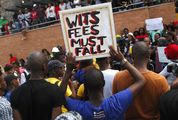
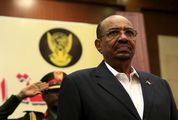
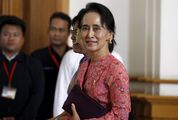



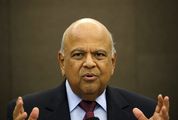



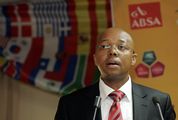











Change: -0.42%
Change: -0.35%
Change: -0.17%
Change: 0.14%
Change: -2.58%
Data supplied by Profile Data
Change: -0.51%
Change: -0.23%
Change: -0.42%
Change: 0.00%
Change: -0.56%
Data supplied by Profile Data
Change: 2.52%
Change: 1.50%
Change: 2.52%
Change: 3.31%
Change: 1.78%
Data supplied by Profile Data
Change: -0.27%
Change: 0.00%
Change: -0.52%
Change: 0.00%
Change: -3.00%
Data supplied by Profile Data